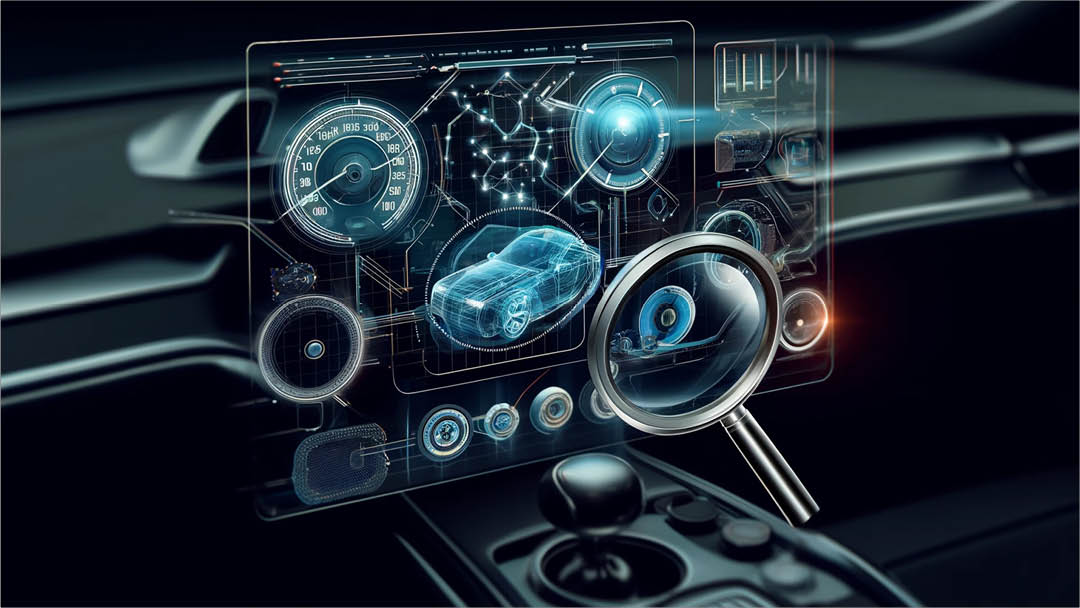The project was highly complex, with 800+ detailed requirements covering power regulation, real-time diagnostics, functional safety, and cybersecurity. It had to meet ASPICE Level 2 certification to ensure it complied with industry standards. To deliver a reliable and fail-safe power system, the Tier-1 partnered with Acsia for their expertise in power electronics software, functional safety, diagnostics, and cybersecurity.
A System Designed for Reliability
The 12V-DC-DC power converter was designed to meet critical operational and safety requirements, such as:
- Intelligently regulate voltage levels, taking input from the primary power source to maintain stability.
- Boost and manage energy flow, ensuring continuous and uninterrupted power supply.
- Monitor voltage, current, and temperature in real time, detecting potential failures before they could cause disruptions.
- Integrate cybersecurity protections, safeguarding against external threats and unauthorized access.
- Seamlessly communicate with other vehicle systems, allowing for smooth power transitions without interruption.
To turn these requirements into a functional, real-world system, Acsia used a structured methodology to translate 800+ requirements into a working system architecture – deconstructing and categorising each function into hardware, software, and operational components, ensuring alignment with safety, performance, and compliance. This ensured that each system function was carefully mapped to its intended role, making implementation efficient and predictable.
AUTOSAR Integration
A critical enabler in meeting these requirements was the integration of the AUTOSAR base software stack. Acsia was chosen for its deep expertise in AUTOSAR configuration, integration, testing, and validation, as well as its ability to handle Functional Safety responsibilities aligned with the ASPICE V model. The scope included:
- Derivation of system and software requirements for the Tier-1 product
- Integration of the Vector bootloader with Tier-1 algorithms
- Integration of OEM-specific application software components into the AUTOSAR stack
- Development and integration of diagnostic services based on UDS (ISO 14229)
- Development and integration of OBD functionality using OBD-on-UDS protocol
- Software test case development, validation, and execution aligned with ASPICE standards
- Software test automation and execution in a HIL (Hardware-in-the-Loop) environment
A custom application layer was developed to manage the key control strategies of the DC-DC converter, including capacitor precharge control and boost-mode activation based on inputs from the BMS. This layered architecture ensured safety, traceability, and platform scalability.
Developing a DC-DC power system isn’t just about regulating voltage – it requires precision, safety compliance, and intelligent fault handling. Acsia worked to ensure that every aspect of the system was designed for stability, security, and resilience.
Fail-Proof Safety
- To meet the strictest industry safety standards, Acsia implemented:
- A smart state machine that dynamically managed power transitions and system recovery.
- ASIL-D (hardware) and ASIL-B (software) safety measures, ensuring compliance with functional safety standards.
- End-to-End (E2E) protection for CAN communication, guaranteeing secure and interference-free data transmission.
- Memory Protection Unit (MPU) safeguards, isolating critical processes to prevent unintended failures.
- Comprehensive safety evaluations, including HAZOP (Hazard and Operability Analysis) to identify and mitigate risks.
- 99% test automation, accelerating validation and ensuring a high level of system reliability.
These measures ensured the DC-DC power system was not only operational but also fail-safe, setting a new benchmark for intelligent power management solutions.






